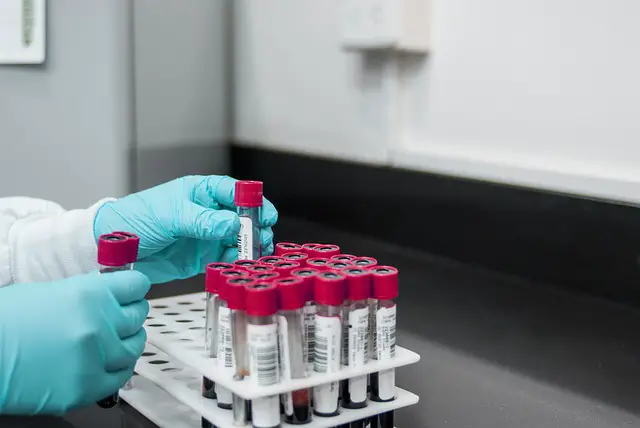30 Careers Related to Industrial Chemistry
Industrial chemistry is a fascinating field that plays a pivotal role in transforming raw materials into essential products that improve our everyday lives. From the production of pharmaceuticals to the development of advanced materials, industrial chemists are at the forefront of innovation and technology. In this blog post, we will explore 30 diverse and exciting careers related to industrial chemistry, showcasing the endless possibilities this field has to offer.
30 Careers Related to Industrial Chemistry
- Chemical Engineer: Chemical engineers design and optimize chemical processes used in industrial production, ensuring efficiency and safety.
- Process Development Chemist: Process development chemists create and optimize manufacturing processes for chemical products, ensuring scalability and cost-effectiveness.
- Quality Control Chemist: Quality control chemists analyze and test chemical products to ensure they meet strict quality and safety standards.
- Analytical Chemist: Analytical chemists use various techniques to analyze chemical samples and identify their components accurately.
- Environmental Chemist: Environmental chemists study the impact of chemical processes on the environment, working towards sustainable and eco-friendly solutions.
- Formulation Chemist: Formulation chemists develop and optimize chemical formulations for products like cosmetics, pharmaceuticals, and consumer goods.
- Polymer Chemist: Polymer chemists work with the development and synthesis of polymers used in plastics, fibers, and materials.
- Materials Scientist: Materials scientists research and develop new materials with unique properties for applications in industries like aerospace, electronics, and medicine.
- Petrochemical Engineer: Petrochemical engineers are involved in the production and refinement of chemicals and fuels derived from petroleum.
- Nanotechnologist: Nanotechnologists manipulate materials at the nanoscale to create innovative products and technologies.
- Food Chemist: Food chemists analyze and develop food products to improve taste, nutritional value, and shelf life.
- Pharmaceutical Chemist: Pharmaceutical chemists focus on the development and synthesis of drugs for medical treatments.
- Textile Chemist: Textile chemists work on the chemical processes involved in textile production, such as dyeing and finishing.
- Cosmetics Chemist: Cosmetics chemists formulate and develop skincare and beauty products, ensuring safety and efficacy.
- Biotechnologist: Biotechnologists use biological systems to develop products and processes for various industries, including healthcare and agriculture.
- Adhesives and Sealants Chemist: These chemists work on developing adhesives and sealants used in various industrial applications.
- Flavor Chemist: Flavor chemists create and analyze flavor compounds used in the food and beverage industry.
- Water Treatment Chemist: Water treatment chemists develop and implement processes to purify and treat water for safe consumption.
- Explosives Chemist: Explosives chemists research and develop explosive materials for industrial, military, and mining applications.
- Environmental Health and Safety (EHS) Specialist: EHS specialists ensure compliance with safety and environmental regulations in chemical industries.
- Forensic Chemist: Forensic chemists analyze chemical evidence for criminal investigations and legal proceedings.
- Paint and Coatings Chemist: Paint and coatings chemists develop and optimize formulations for paints used in various applications.
- Clean Energy Technologist: Clean energy technologists work on developing and implementing sustainable energy solutions using chemical processes.
- Pulp and Paper Chemist: Pulp and paper chemists optimize chemical processes in the paper industry to improve production efficiency and product quality.
- Surface Coatings Technologist: Surface coatings technologists work on coatings for metals, ceramics, and other materials to improve their properties.
- Flavorist: Flavorists create natural and artificial flavors used in various food and beverage products.
- Corrosion Chemist: Corrosion chemists study and develop methods to prevent and control corrosion in industrial materials.
- Process Safety Engineer: Process safety engineers design and implement safety measures to prevent accidents and incidents in chemical processes.
- Fertilizer Chemist: Fertilizer chemists develop and optimize fertilizer formulations to enhance plant growth and agricultural productivity.
- Personal Care Product Chemist: Personal care product chemists create formulations for personal care products such as shampoos, lotions, and soaps.
Frequently Asked Questions (FAQs)
1. What is industrial chemistry, and what career opportunities does it offer?
Industrial chemistry is a branch of chemistry that focuses on the application of chemical principles and processes in various industries. It involves the development, optimization, and production of chemicals, materials, and products for commercial purposes. Career opportunities in industrial chemistry include chemical engineering, quality control chemist, environmental chemist, pharmaceutical chemist, materials scientist, and many more.
2. What does a chemical engineer do in the industrial chemistry field?
Chemical engineers in the industrial chemistry field design and optimize chemical processes used in industrial production. They are responsible for ensuring the efficiency, safety, and cost-effectiveness of chemical processes in industries like manufacturing, pharmaceuticals, and petrochemicals.
3. How does one become a quality control chemist in industrial chemistry?
To become a quality control chemist in industrial chemistry, individuals typically need a bachelor’s degree in chemistry or a related field. Specializations or additional coursework in quality control and analytical techniques are beneficial. Hands-on experience and internships in quality control laboratories can also enhance career prospects.
4. What is the role of an analytical chemist in industrial chemistry?
Analytical chemists in industrial chemistry use various techniques to analyze chemical samples and identify their components accurately. They play a crucial role in ensuring product quality and compliance with industry regulations.
5. Can you provide examples of industries where industrial chemists work?
Industrial chemists work in a wide range of industries, including pharmaceuticals, petrochemicals, food and beverages, textiles, cosmetics, environmental management, water treatment, biotechnology, and more.
6. How can industrial chemists contribute to environmental sustainability?
Industrial chemists can contribute to environmental sustainability by developing and implementing eco-friendly manufacturing processes, researching sustainable materials, and analyzing the environmental impact of chemical processes. They also play a role in waste management and pollution control.
7. What does a materials scientist do in the context of industrial chemistry?
Materials scientists in industrial chemistry research and develop new materials with unique properties for applications in industries such as aerospace, electronics, medicine, and renewable energy.
8. How can someone pursue a career in pharmaceutical chemistry?
A career in pharmaceutical chemistry typically requires a strong educational background in chemistry or pharmaceutical sciences. Individuals can pursue higher degrees such as a Master’s or Ph.D. in pharmaceutical chemistry or related disciplines to enhance their career prospects.
9. What are the responsibilities of a food chemist in industrial settings?
Food chemists in industrial settings analyze and develop food products to improve taste, nutritional value, shelf life, and safety. They work to ensure compliance with food regulations and industry standards.
10. Is industrial chemistry only about manufacturing chemicals?
No, industrial chemistry involves much more than just manufacturing chemicals. It includes various aspects such as product development, quality control, environmental impact assessment, materials research, and process optimization across multiple industries.
11. What is the career outlook for professionals in industrial chemistry?
The career outlook for professionals in industrial chemistry is generally positive. With growing demand for new products and sustainable solutions across industries, there is a constant need for skilled chemists and engineers to drive innovation and improve processes.
12. Are there opportunities for research and development in industrial chemistry?
Yes, research and development play a significant role in industrial chemistry. Companies invest in R&D to create new products, improve existing ones, and develop more efficient and environmentally friendly processes.
The field of industrial chemistry presents a wide range of exciting and rewarding career opportunities across various industries. From chemical engineering and quality control to materials science and pharmaceuticals, professionals in industrial chemistry contribute to innovation, sustainability, and advancements that shape the world we live in. Whether you’re interested in research, process optimization, or product development, a career in industrial chemistry offers a dynamic and fulfilling path for those passionate about chemistry and its real-world applications.
READ ALSO: 40 Careers Related to Pharmacy









One Comment